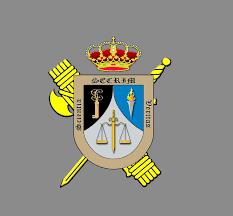

Health
Immunotherapy will open a Less Toxic, More Effective Door against Cancer
Immunotherapy, or the administration of medications that create an immune system response is a “new field” in oncological treatments, and allows us to “open a door” to securing better results with less toxicity, compared with the use of traditional medications.

Doctor Antonio Brugarolas, Director of the Oncology Platform at Hospital Quirónsalud de Torrevieja, made this statement in an interview with EFE, where he explained that immunotherapy treatments, which have become common in the last four or five years, have proven very effective against tumours in different organs, such as the lungs and the liver.
The medications used in immunotherapy, the so-called “checkpoint” inhibitors, generate an immune system reaction against the tumours, the Doctor explains, adding that the role of these inhibitors is to allow lymphocytes to attack tumours, a reaction that does not occur naturally in cancercases because the tumour prevents it.
“The generalisation of immunotherapy is itself a revolution, it means going from taking 20-cm steps to advancing seven meters,”affirms Dr Brugarolas, adding that the main advantage of these pharmaceuticals is that they allow us to obtain “very interesting responses” in different types of cancer, with less side effects than in the case of other treatments, such as chemotherapy.
These medications are administered intravenously, in repeated sessions every two or three weeks, and they do not have side effects such as hair loss, the appearance of sores or low levels of leukocytes, without this reducing their effectiveness.
The oncologist places the response rate at approximately 20% when these inhibitor medications are used, and points out that around one in four patients who respond to immunotherapy have a long evolution, and the patients whose response rate is increased are long-term cancer patients, who continue to see results years after having entered remission.
Doctor Brugarolas addsthat immunotherapy is not, at this time, the “definitive solution” against cancer, and it has not been proven to be a cure if administered on its own, but he points out that it does increase the effectiveness of chemotherapy, and improves the quality of life of patients.
“We are convinced that these new medications open one of the multiple doors of this complex building that is immunity, and while it is true that there are others, we have entered a very good door,” he stresses.
In order for the opening of this “door” to be truly effective, the Quirónsalud physician considers a multidisciplinary approach essential for oncological treatments, with the understanding that “a sole specialisation does not cover the whole procedure,” rather, different departments need to work with a patient simultaneously and permanently, collaborating with each other.
This approach, which the specialist has put in practice for almost two decades, since his arrival at Quirónsalud Torrevieja in the year 2000, is particularly important when administering immunotherapy, since in these cases, the coordination between oncologists, immunologists, pathologists and the laboratory is crucial.
In addition, stresses Doctor Brugarolas, immunotherapy makes the personalised oncology approach more necessary than ever before, since the treatment is adapted to the specific characteristics of each patient.
“Every case is different”, says the Doctor, explaining that because of this, “a ‘microray’ test has to be performed on each tumour in order to analyse whether it has cancer inductor genes, and its reaction to the medications is monitored, to predict how it will respond.”
The oncologist is convinced that there will be a time when we can predict the success of these treatments with parameters enabling the classification of each case, and he adds that, in fact, some steps have already been taken in that direction, such as the PDL1 test, which allows us to measure, using percentages, the probability that immunotherapy will work in each patient.
In addition, he warns that the widening of the indications of these treatments is closer than ever, and explains that, at the annual meeting of the American Society of Clinical Oncology (ASCO), which took place in June of 2018, preliminary results on the effectiveness of immunotherapy in cases of ovarian, cervical and salivary gland cancers were presented.
In any case, Doctor Brugarolas predicts a considerable development of this type of therapy in the next few years, which, he stresses, “have simplified oncological treatments and increased patients’ quality of life,” and that, despite their “sudden” appearance, they are here to stay. EFE



























